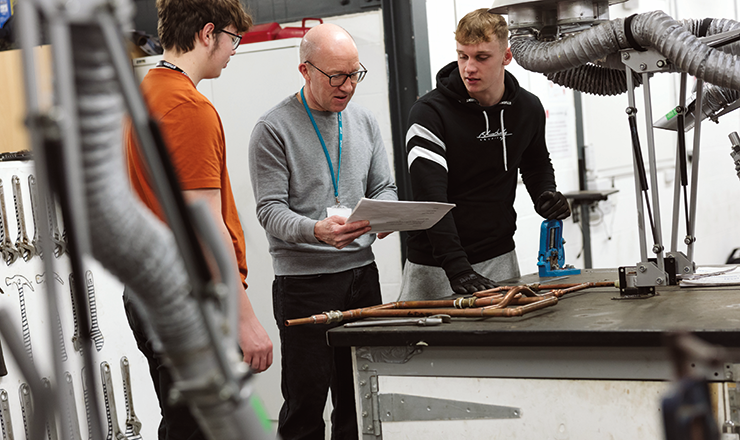
Lift-off for CIPHE low-temperature qualification
Chartered Institute of Plumbing and Heating Engineering (CIPHE) has launched its qualification for low-temperature heating and hot water systems in dwellings.
The Ofqual-regulated qualification is the result of a two-year collaboration with the Heat Pump Association, LCL Awards, manufacturers and industry professionals. It aims to upskill heating engineers to design and install low-temperature heating and hot water systems, which use less energy and can be used with heat pumps.
CEO Kevin Wellman says: “Public demand for low-temperature heating systems is only going to increase, and we need to ensure the industry is ready to step up. With this new qualification, installers will have the knowledge, competence and confidence to install technologies that may have previously felt quite unfamiliar.
“If we are to reduce emissions, the simple fact is that systems need to be correctly designed and installed, and so it’s installers who sit at the heart of net-zero. This course will be a prerequisite to the Heat Pump Association’s own training courses and will help launch a number of new careers in the renewables sector.”
LCL Awards director Mark Krull adds: “We are delighted to have worked with CIPHE on this venture, developing a new qualification that meets the demands of multi-skilled installers – the type of engineers required to deliver evolving heat and power demands. Low-temperature heating and hot water systems are often renewable, but the latest gas combi boilers combined with underfloor heating, for example, also meet this brief, making this qualification a future-proof choice for today’s building services installers.”
At the end of the two-day course, heating engineers will:
• Be aware of the latest industry standards and regulatory framework relating to heating design
• Know the requirements for undertaking room-by-room heat loss calculations
• Understand how to size heat emitters correctly
• Know how to size pumps and pipework correctly
• Understand how to size a domestic hot water system correctly
• Be familiar with the basic design principles of system configurations.

